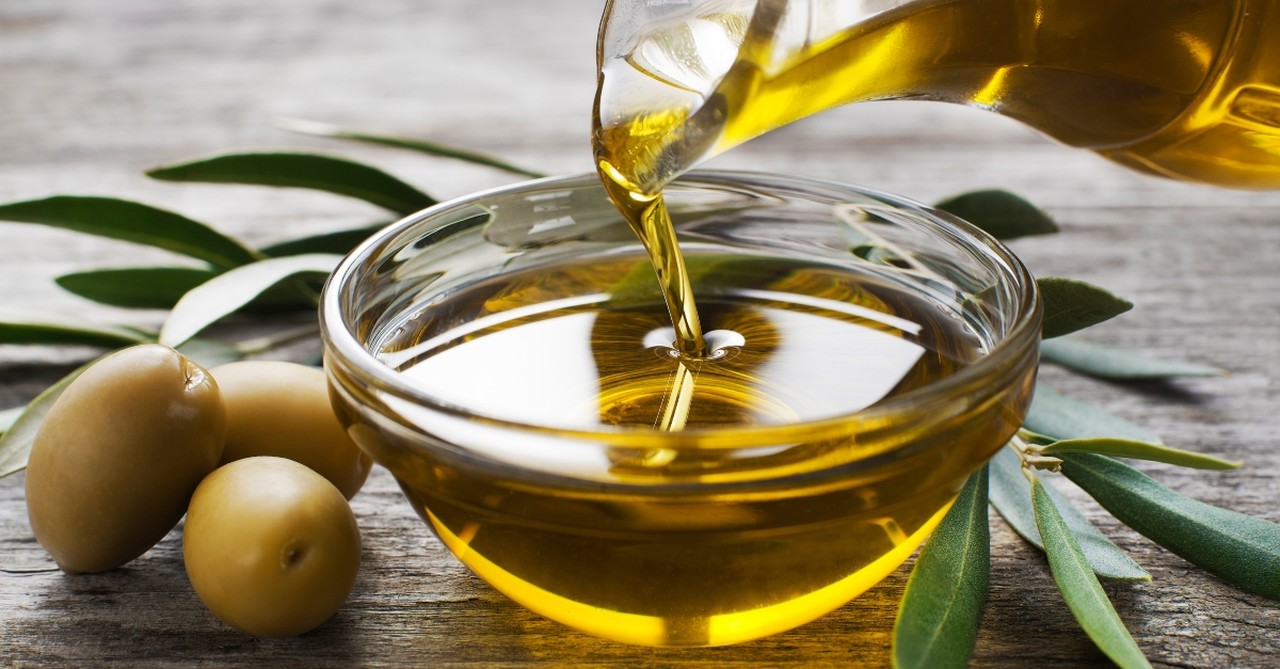6 Lessons about Prayer Jesus Teaches Us in the Garden of Gethsemane

Have you ever considered if you were given the foreknowledge of your life how you may spend your final hours?
Jesus as the Son of God knew His mission, and He knew down to the millisecond the exact timing for the events that must unfold of His life. In the hours before Jesus was taken to be crucified and ultimately die for our sins, Jesus chose to pray.
This vocalized prayer time within the Garden of Gethsemane can teach us much about prayer and the heart of our Savior. Here are 6 lessons Jesus teaches us in this crucial time.
Photo Credit: ©Getty Images/1971yes
1. Prayer Is Relationship with Our Heavenly Father

1. Prayer Is Relationship with Our Heavenly Father
SLIDE 1 OF 5
Prayer is connection, conversation, and communion with our Father in Heaven and through prayer relationship is fostered and grown. We are not merely praying to the ceiling above us, we are speaking with our Creator.
In Mark 14:36 Jesus calls out to God using the name, Abba Father, which translated would be as to call God daddy or papa. Using the name of Abba Father was not disrespectful as concern could rise of such an informal way of referring to the Lord, rather, it was evidence of the relationship Jesus had with His Heavenly Father.
And Romans 8:15 tells us that it is by Jesus that we also cry to the Creator of everything, Abba, Father!
That is what God desires for us as well, that we may call upon Him as our Father tenderly, emotionally, and with deep reverence in love. Likewise, God desires such an intimate relationship with us as His children.
Romans 8:26 reminds us that He understands even our sighs and groans. Just as a parent may come to understand the non-verbal needs of a child by a tear or cry, God understands our hearts before we even open our mouths to speak.
Prayer invites the exchange between us and God. This is why Paul encourages to pray without ceasing (1 Thess. 5:16) in order that we may build that relationship with the Lord in order to know Him, trust Him, and connect with Him all the more.
Jesus had that kind of relationship in the Garden, and it is available to us just the same.
Photo Credit: ©iStock/Getty Images Plus/Boonyachoat
2. Prayer Can Produce Beauty from Pain

2. Prayer Can Produce Beauty from Pain
SLIDE 2 OF 5
Every detail of the Word of God holds great intention and purpose, even down to locations. In the hours before He was taken before Pilate Jesus chose to pray in the Garden of Gethsemane.
Gethsemane in Aramaic (a common language of the time) means, oil press. In order for olive oil to be produced olives must be pressed, squeezed, and crushed.
What is produced through that is something pure. That is why specifically Virgin Olive Oil comes from specifically cold-pressed olives without the addition of processed oils.
In the Garden Jesus was pressed in prayer, it says in Luke 22:43 how He sweat as if drops of blood were pouring from His face. Gethsemane proved to live up to its name of pressure upon Him, yet from the Garden He emerged ready to complete the task He came to Earth for.
The immense pressure caused Jesus to continue to cry out to His Father for comfort, guidance, and a stunning example of surrender. How beautiful!
For us there will be times within our prayer lives where we feel as if we are so crowded by fear, grief, or burden that we do not know how to come out the other side, but recall it is in prayer that we call out to God, we take His hand, and we know that He is with us.
Often it is through these very prayers that what is produced within us is pure and something sacred, it is no surprise that olive oil is what as used in anointing after all.
Photo Credit: ©Getty Images/dulezidar
3. God's Will Is Always Better

3. God's Will Is Always Better
SLIDE 3 OF 5
The refrain of the prayers within Gethsemane were of, “Father, if you are willing take this cup from me; yet not my will, but yours be done.”
Jesus repeated this in some Gospel accounts three times over. What we can draw from these honest words are that it is not sinful to not desire the hard path however we must remain obedient.
Obedience to God is seldom the easy path as we gaze upon the mountain to be climbed, but in time it will prove the right way.
Jesus knew the will of His Father and what would be required in order for all prophecy to be fulfilled, and what was necessary in order that the Words spoken by God to prove faithful. The hours that would unfold next for Jesus would be that of complete torture, suffering, and misery to the point of horrific death upon the Cross, yet He obeyed.
He did this in order that we may be forgiven of our sins and in order that the promise of His Father may be carried out.
Imagine the pure delight and ecstasy in Heaven after Jesus completed His task, and the joy of His followers on Earth as He rose again to greet them. The victory is only preceded by the trial.
From these truths, we can take away that God’s will ultimately be what will unfold, but also through obedience, though it be daunting at times what will be birthed is that of His glory and our benefit.
Photo Credit: ©Unsplash/Priscilla Du Preez
4. We Are Not Alone

4. We Are Not Alone
SLIDE 4 OF 5
Scripture tells how Jesus went into the Garden to pray, and although his friends were not a stone’s throw away, he entered into the place alone.
In agonizing prayer, He went before the Father knowing fully what was to come, and in battle with His own flesh the request if there could be any other way if it could be so. Luke 22 explains how He prayed in such earnest that it was as if his sweat was like drops of blood falling to the ground, what imagery that conveys of someone truly in complete affliction.
Yet, He was not alone. Verse 43 shares how an Angel was sent to give him strength and comfort Him. In our times of forlorn prayers, we may not have a visible Angelic visitation, but we can know His Spirit is with us.
Take notice as well how He comforts us through friends reaching out, through reminding winks, or through blankets of peace that come upon us. Rest in knowing you are not alone and you never will be.
Hold firm to His promise in John 14:26-27, through His Spirit He gives peace, understanding, and a pouring out of love. Through prayer comes connection, and through connection comes communion.
5. Don’t Sleep on the Job
In every account of the Gospels it is apparent that Jesus’s disciples quite literally fell asleep on the job.
Jesus requested that they remain in prayer as He went off to pray alone in order that they may not fall into temptation or worse. Matthew 26 finds the disciples falling asleep multiple times throughout the night. The wisdom that can be gleaned from these verses in our own prayer walk is that we must not become drowsy to the call of the Lord.
If the Lord has called upon you to enter into a time of prayer for someone or something, do not delay and do not defer. The Lord is inviting you graciously to take part in the intercession of an event, do not reject such an ask.
Welcome it and carry it out with great care. For on the other side of it all you too will then be able to vigorously rejoice in seeing the glory that is the Lord’s.
Photo Credit: ©Pexels/Andrea Piacquadio
6. The Flesh Is Weak

6. The Flesh Is Weak
SLIDE 5 OF 5
The sincere prayers of Gethsemane remark how the spirit is willing, but the flesh is indeed weak. Why this is stated and not assumed is because in order for the flesh to not deter or hold back what the spirit was willing to do in obedience strength was required.
Luke’s account of the Garden prayer conveys how an Angel of God was sent to strengthen Jesus, and it is through the Spirit of God that Jesus was able to access the strength needed to complete the task that lay before Him.
In our times of struggle, it would not be a stretch to feels weary and weakened to move forward, but it is through finding our strength not within our own selves, rather through His Holy Spirit within us that we can then and only then complete what lies ahead.
Let Him embolden your spirit and your flesh in order that you may courageously continue on, brave heart. His Spirit within you is strong and faithful to carry you onward.
The Glory of Gethsemane
Albeit a dark time leading up to the sacrifice of Christ, the prayers of the Garden of Gethsemane can teach us so much about prayer in our own walks.
It reminds us that we do not walk through dark times alone, and that He is with us in those tearful moments. The pressing and strain will prove worthwhile through His will and in His timing. The relationship born of prayer with Him is the true glory of it all, coming to personally and truly know our Creator and His great love for us.
Praise His name, and praise Him for His great sacrifice for us.
Photo Credit: ©Amaury Gutierrez/Unsplash

Originally published March 08, 2021.






